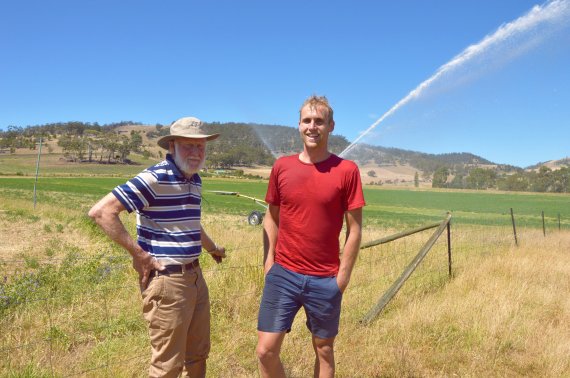The Netherlands is increasingly suffering both droughts and floods. Changes such as modifications to drainage systems or mini dams in ditches could help make the country more climate-robust. But that would require individual farmers to spend money on their land. In such a situation, farmers weigh up the net benefits for them and look at whether their neighbours are also investing.
Governments usually use grants to encourage such investments, says Nikkels, who is doing his PhD in the Water Resources Management group. But they actually have no idea how an investor’s decision-making process goes. ‘It may not be the costs that determine whether a farmer invests; it could be other reasons.’
Nikkels facilitated group discussions in Walcheren, where farmers work together to store fresh water and keep out salt water. ‘I discovered that some farmers are prepared or able to pay a lot more for water than others. They are now having to deal with that because they are investing together. If you swap personal expertise and experience, that creates understanding and makes it easier to arrive at joint investments.’
In Australia, Nikkels was involved in a wastewater project that could provide water for farmers. But some farmers were against it. In group discussions, it turned out that they drew up five-year plans and wanted a water price that would be fixed for five years. Nikkels: ‘A relatively simple change to the delivery conditions increased their willingness to pay. That would never have worked without those discussions.’

 Melle Nikkels (right) also visited farmers in Australia for his PhD research on collective water management. Photo: Melle Nikkels
Melle Nikkels (right) also visited farmers in Australia for his PhD research on collective water management. Photo: Melle Nikkels